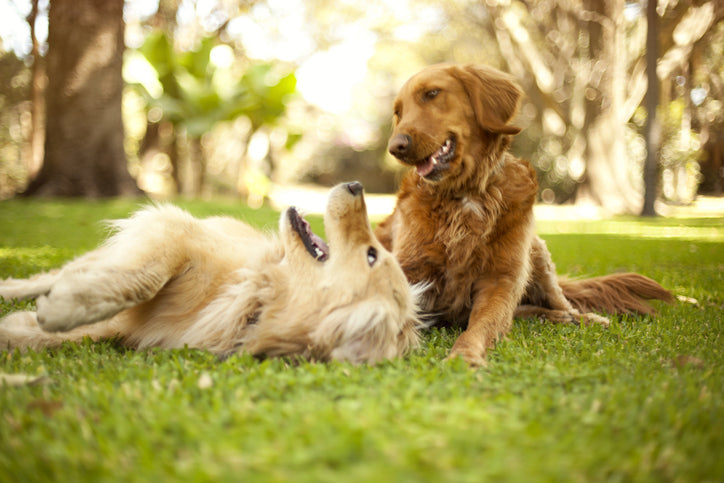
Do Dogs Have Best Friends?
Dogs are known for their loyalty and affection towards humans, but do they have best friends within their own species? The answer is a resounding yes! Dogs are social animals with complex emotions, and they can form strong bonds with other dogs. These bonds are similar to the friendships humans form with one another.
Observing Dog Friendships
Anyone who has spent time at a dog park or watched dogs interact with each other can attest to the existence of dog friendships. Dogs often have preferred playmates with whom they engage in various activities like running, wrestling, and chasing. They may even display behaviors that indicate a deeper connection, such as grooming each other or sleeping side by side.
Factors That Influence Dog Friendships
Several factors influence the formation of dog friendships. First and foremost is the dog's socialization history. Dogs that have been well-socialized from an early age are more likely to interact positively with others and develop strong friendships. Genetics also play a role; some breeds are more sociable and prone to forming bonds than others.
Personality compatibility is essential in dog friendships, just as it is in human relationships. Some dogs prefer more active play, while others enjoy a more gentle approach. When dogs share similar play styles and energy levels, they are more likely to hit it off and become best friends.
The Role of Body Language
Like humans, dogs use body language to communicate their feelings and intentions. When dogs meet for the first time, they engage in a series of actions to assess each other's body language and signals. Play bows, wagging tails, and relaxed postures indicate friendliness and a desire to play. On the other hand, raised hackles, growling, and stiff postures are signs of discomfort or aggression.
Dog friendships develop gradually, with dogs spending time together, learning to trust each other's cues, and understanding each other's boundaries. Over time, they build a bond that can last a lifetime.
The Importance of Dog Friendships
Dog friendships are more than just fun playdates; they serve important social and emotional functions. Dogs are pack animals, and having friends allows them to practice social skills, establish hierarchies, and learn valuable lessons about cooperation and conflict resolution.
Dog friendships also contribute to their overall well-being. Just like humans, dogs can experience stress and anxiety. Having a close friend can help reduce these feelings, providing comfort and security during uncertain or challenging situations. In multi-dog households, strong friendships can prevent loneliness and boredom when their human family members are away.
Nurturing Dog Friendships
As a dog owner, you can encourage and nurture your dog's friendships. Arrange playdates with dogs they get along with, whether it's at a dog park or with friends and family who have canine companions. Supervise these interactions to ensure positive experiences and step in if any disagreements arise.
Remember that every dog is unique, and some may be more sociable and eager to form friendships than others. Respect your dog's preferences and don't force them into situations that make them uncomfortable.
Conclusion
Dogs do have best friends! Just like humans, they form strong bonds with other dogs based on shared experiences, personalities, and trust. These friendships are essential for their social development and overall happiness. As a responsible dog owner, you can support and enrich your dog's life by providing opportunities for them to connect with their furry best friends.


